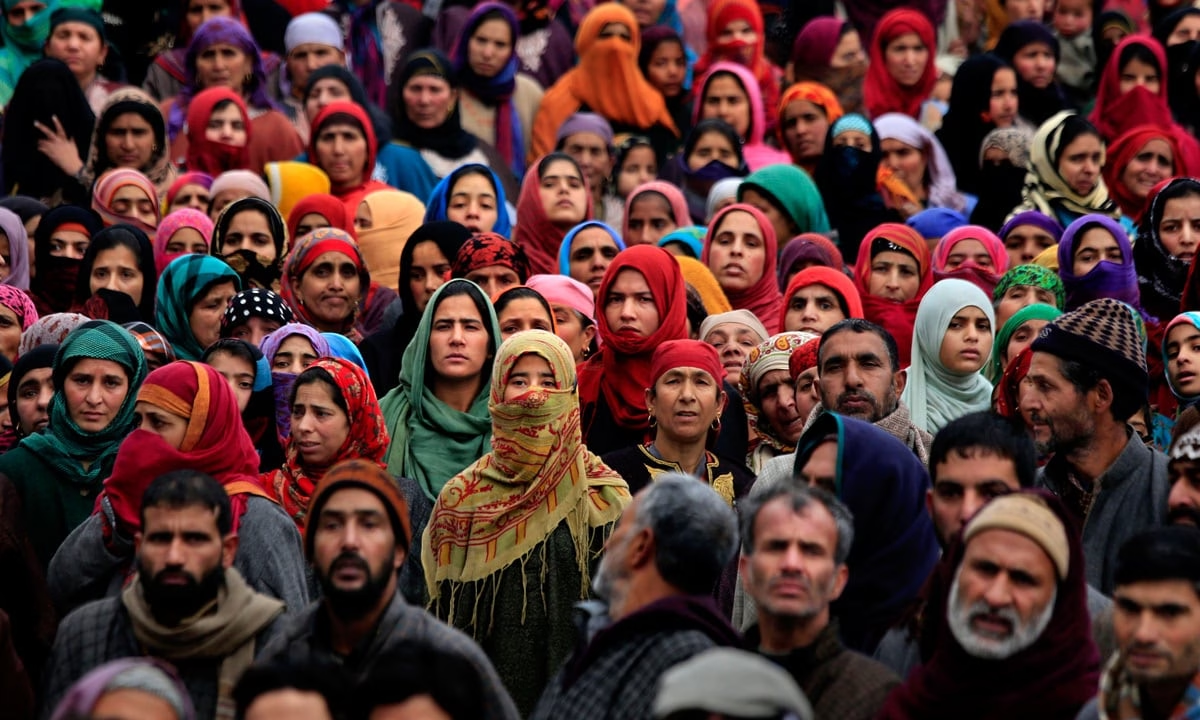Nyla Ali Khan
Indian nationalists are quick to claim their intractable hold on Kashmiris; Pakistani nationalists are just as quick to claim to speak for Kashmiris. Kashmir, despite having a real internal history and a place in the world, is suppressed by its positioning in the Indo-Pak conflict.
Mainstream Kashmiri politicians culpably reiterate that “Kashmir is an integral part of India,” in the process negating the people’s voices and real existence. Separatists are just as quick to scrap that assertion with their vociferous calls for hartal, in the process side-lining the educational and psychological needs of the younger generation. New Delhi in its signature style is straddling the fence by underlining the need for “dialogue” and “quiet diplomacy” but not taking any substantive measures to “talk” to Kashmiris.
The profundity of memories and mourning of Kashmiris cannot be relegated to the background in official accounts of history. The aggressive statements, delusions of grandeur, melodramatic performances, and witty quips of Kashmiri mainstream politicians as well as separatist leaders have a short-lived glory and do nothing to alleviate the pain of anxious parents, destitute widows, bereaved mothers, vulnerable orphans, educated people unable to make a decent living.
Accounts of the insurgency in Kashmir discount narratives that do not contribute to the deepening breach caused by the communalisation of the Kashmir issue and the zeal of Indian and Pakistani nationalism, according to which “Kashmir is unquestionably an integral part of India,” or any people’s movement in Kashmir is led by “anti-national militants,” or “Pakistan is sincere in its attempts to resolve the Kashmir conundrum” leaves out the politics of the people as was done in official accounts of the Partition of India.
The entire subcontinent has several common problems, and the people are bound to each other by numerous ties, but partition resulted in the separation of families.
The key to the solution of problems that confront India and Pakistan is diplomatic relations and rapprochement between the two countries
In one of my favourite novels, Shadow Lines, the author, Amitav Ghosh, shows that the nation is rendered all the more threatening when the war that leads to its construction is internecine and does not bind Muslim to Hindu or Bengali to Kashmiri but rather sunders Bengali from Bengali, Kashmiri from Kashmiri. Such an irregular was polarising ethnic groups into Hindus and Muslims who are required to disaffirm their cultural, linguistic, and social unities.
As one of the characters in Ghosh’s novel wonders, “And then I think to myself why can’t they draw thousands of little lines through the whole subcontinent and give every little place a new name? What would it change? It’s a mirage; the whole thing is a mirage. How can anyone deny a memory?” (247).
The partition is a vivid manifestation of the claim that postcolonial nations are founded in a bloody severance of the umbilical cord, one that fortifies borders between nation-states with irrational and remorseless violence. The discourse of ultra-right-wing nationalism, however, affects to make sense of the absurd loss of lives.
Referring to the role played by nationalist parties in the partition of the subcontinent, the narrator queries,
“What had they felt, I wondered, when they discovered that they had created not a separation, but a yet-undiscovered irony—the irony that killed Tridib: the simple fact that there had never been a moment in the four-thousand-year-old history of that map, when the places we know as Calcutta and Dhaka were more closely bound together . . . So closely that I, in Calcutta, had only to look in the mirror to be in Dhaka; when each city was the inverted image of the other, locked into an irreversible symmetry by the line that was to set us free—our looking glass border.” (233)
So, the similarity in the emotions evoked by cultural affiliations on the two sides of the border renders the inclusion/ exclusion dichotomy incoherent.
The key to the solution of problems that confront India and Pakistan is diplomatic relations and rapprochement between the two countries.
There is no doubt that the progress and future development of both these countries rests largely on their ability to proceed hand in hand with each other and cooperate in joint ventures, avoiding all wasteful expenditure,including loss of innocent lives, incurred by them on their mutual confrontation, as that would spell doom.
Identifying areas of common outlook and interest is a process of growth.
I firmly believe that in order to address wider political, socioeconomic, and democratic issues in the subcontinent requires rethinking decision-making between state and non-state actors as well as between state and society.
Perhaps it is time to seriously consider a new regional order which would be capable of producing cross-economic, political, and cultural interests among the people of the region.
The writer is the author of Fiction of Nationality in an Era of Transnationalism, Islam, Women, and Violence in Kashmir.


Leave a Reply